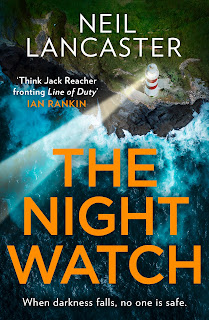I’ve been wanting to write a piece for some time about this subject. One of the first questions an author gets asked when a new book is released is, “Where did the inspiration for the book come from?”
It really got me thinking. “Where do you get your ideas from?” is up there with “this is more of a comment than a question” when appearing at panels, except it’s a little less annoying.
So where do we get our ideas from, then?
I’m not the most organised of writers, in fact it’s probably fair to say I am one of the least organised writers. I have no big list of subjects for future books, nor am I someone endlessly scribbling notes in a book when out and about or watching TV. When I’m writing, all I’m thinking about is that book, not a future one. I generally have no idea what my next book is going to be about until I sit down, with a deadline set, and think, “what’s this about, then?” Then cue the nervous head scratching waiting for an idea to arrive, fortunately so far, they always have.
My latest book, The Night Watch came almost out of nowhere. The only vague theme I wanted to think about was that of a serial killer book because I had worked on a number of high-profile cases concerning series murders. But that’s all I had. Writing a serial killer novel is hardly unique, is it? The shelves of bookshops are groaning with them.
Whilst frantically perusing the internet I happened upon a news report about a case in Scotland where the jury returned a “not proven” verdict, which had caused a certain amount of disquiet. Something about the case made me read on. I felt that familiar tingle of an idea arriving.
A “not proven” verdict is a strange anomaly peculiar to Scottish criminal trials. In England and Wales, a jury only has two options for a verdict: “guilty,” or “not guilty.” In Scotland they have a third. “Not proven” sits somewhere between guilty and not guilty and is a rather strange thing. There is no definition of a not proven verdict, and no fundamental difference between it and a not guilty verdict. It is still an acquittal, and the defendant is innocent in the eyes of the law. But it is different, isn’t it?’ Declaring a defendant’s case as “not proven” is almost saying, “we still think you did it mate, but the crown has not proved it quite enough”.
Scottish law is significantly different than English law, and one notable difference is the requirement for corroboration of evidence. If the only evidence of a crime was one witness seeing the defendant committing the crime, then that would not be sufficient, and would inevitably lead to a “not proven” verdict.
Whilst researching the not proven history, I came up with the wonderful description ascribed to not proven verdicts. Sir Walter Scott, the famous Scottish novelist, poet, playwright and historian and sheriff of the court of Selkirk described it as a “bastard verdict,” which it remains colloquially now to this day.
That was the spark for The Night Watch. That one phrase kicked my mind into gear, and I knew from that moment that I had the story for my book.
It made me realise how unsatisfactory this verdict is, and whilst many bang-to-rights defendants may celebrate it, what about those on the other side. The cops, the victims, and concerned members of the public. What would their reactions be?
What if the cops in a long running, complex murder case were so outraged that they would not let a not proven verdict get in the way of what they truly considered justice?
Imagine if a cop was so affronted when they perceived that justice had not been done, that they decided to take matters into their own hands?
How can you catch a serial killer, when the murderer is on the investigation team?
The Night Watch was born.
Nb… possibly wisely, not proven verdicts are being abolished, but not in time for me to have written my book!
The Night Watch by Neil Lancaster (HarperCollins) Out Now
He'll watch you. A lawyer is found dead at sunrise on a lonely clifftop at Dunnet Head on the northernmost tip of Scotland. It was supposed to be his honeymoon, but now his wife will never see him again. He'll hunt you. The case is linked to several mysterious deaths, including the murder of the lawyer's last client - Scotland's most notorious criminal... who had just walked free. DS Max Craigie knows this can only mean one thing: they have a vigilante serial killer on their hands. He'll leave you to die. But this time the killer isn't on the run; he's on the investigation team. And the rules are different when the murderer is this close to home. He knows their weaknesses, knows how to stay hidden, and he thinks he's above the law..

.jpg)

No comments:
Post a Comment